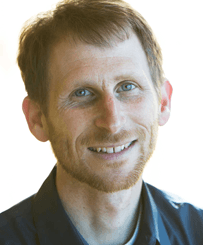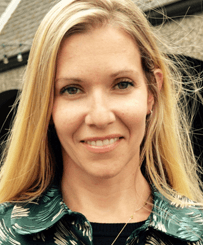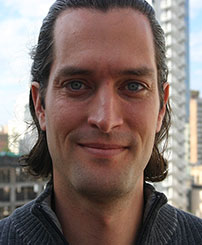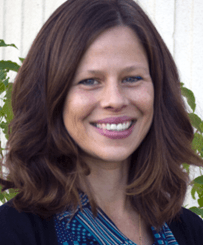Educational Partnerships for Innovation in Communities (EPIC) Workshop
Wednesday, February 1, 8:00 AM – 5:00 PM
Download the EPIC Workshop Agenda PDF
Sponsored by the United States Environmental Protection Agency (EPA), this all-day workshop is designed to introduce university and local government representatives to the Educational Partnerships for Innovation in Communities (EPIC) Framework. This adaptable and replicable campus-community partnership model is now succeeding at more the two dozen higher-education institutions across the country. The model focuses the energy, expertise, and effort of a university campus in a single location to help advance local priority sustainability and resiliency initiatives.
Workshop Includes:
- An introduction to the EPIC Framework, calendar, logistics, and benefits including case studies from proven EPIC Partnerships
- A panel discussion with university and city representatives that have implemented the model
- Guidance on setting up a pilot year
- Highlight of available EPA Decision Support Tools to support EPIC projects
EPIC Programs help universities build capacity by providing resources including ready-made experiential learning projects. Universities provide their students with hands-on experience assisting local governments achieve the sustainability and resiliency goals as identified in the local government’s own work plans. EPIC Partnerships enable cities to reach their goals in an affordable manner while transforming higher education into an arena where students learn through real-life problem solving and develop valuable skills. The projects are as diverse as the universities and their local government partners. As an example, San Diego State University implemented the Sage Project based on the EPIC Framework developed through the University of Oregon Sustainable City Year Program.
The long-term objective of these programs is to establish partnerships that help communities become more sustainable and resilient, build resource capacity within the universities, and provide students with real-world experience.
EPA encourages interested university representatives to attend and to identify a local government representative that might want to pilot the EPIC Program with them to attend the workshop as well.
The intended workshop participants include:
- University Representatives (faculty, administrators, sustainability professionals, service learning / community engagement professionals). Ideally, there will be at least two representatives from each university.
- Local Government Representatives (Local government managers, staff, and other representatives)
- Nonprofit / Philanthropic organizations that support municipal or community related projects or issues
- Federal representatives that support community projects
For questions regarding the workshop program, please contact Dr. Laura Bloch or Dr. Jose Zambrana. For questions regarding registration contact Khrystyna Platte at kplatte@lgc.org.
There is a $69 registration fee to attend this workshop. Coffee and lunch will be provided. To register, select one of the options along the right side of this page
Register for EPIC Workshop ONLY
Register for this workshop AND the full New Partners for Smart Growth Conference at a discounted rate (5%)
ADD this workshop to your current New Partners for Smart Growth Conference registration
Speakers
The trainers Professors Marc Schlossberg and Nico Larco who pioneered this model at the University of Oregon and Jessica Barlow who leads the EPIC “Sage Project” at San Diego State University will provide an in-depth introduction to EPIC, including logistics and benefits; case studies from proven partnerships; guidance on setting up a pilot year; and a panel discussion with city and university representatives who implemented the model. EPA staff will be present to highlight EPA science and decision support tools that can support EPIC projects.

Marc Schlossberg, PhD
Co-Director, Sustainable Cities Initiative (SCI)
Professor, City Planning, University of Oregon.
Marc Schlossberg, PhD, is Co-Director of the Sustainable Cities Initiative (SCI) and Professor of City Planning at the University of Oregon. Subsequent to SCI’s founding of the EPIC model in 2009, Marc and others have helped over 25 universities successfully adopt and adapt it for their local contexts, Marc’s research and teaching focuses on sustainable transportation and how to re-design cities so that more people can walk and bike more of the time, including how to ease the political processes to do so. He is also two time Fulbright Scholar awardee for his work on sustainability and cities.

Courtney Griesel
Economic Development Manager, City of Springfield
Courtney Griesel is the City of Springfield, OR Economic Development Manager. She has a Masters of Organizational Leadership from Gonzaga University and Bachelor of Science in Planning, Public Policy & Management from the University of Oregon. She manages two urban renewal areas, the community enterprise zone, transient room tax program and citywide economic development. In 2016, she was honored by the University of Oregon with the Award for Distinguished Recent Alumna.

Nico Larco
Associate Professor of Architecture, Co-Founder and Co-Director, Sustainable Cities Initiative, University of Oregon
Nico Larco is an Associate Professor of Architecture at the University of Oregon and is a Co-Founder and Co-Director of the Sustainable Cities Initiative, a nationally and internationally awarded, multidisciplinary organization that focuses on sustainability issues as they relate to the built environment. Professor Larco’s research focus is on sustainable urban design and how technological advances are changing city form and development. He recently developed the Sustainable Urban Design Framework that organizes the range of urban design elements and approaches related to sustainability.

Jessica Barlow
Professor, School of Speech, Language, and Hearing Sciences
Director, The Sage Project, San Diego State University
Jessica Barlow is a linguist who teaches and conducts research on language acquisition and bilingualism. She is also heavily involved with sustainability efforts on her campus, including serving on the university’s climate action planning council. Prior to her work as director of the Sage Project, Jessica led curricular workshops to help faculty in higher education across the US to incorporate concepts of sustainability into their courses. Jessica also leads a study abroad program in Finland that focuses on sustainability, education, and culture.




